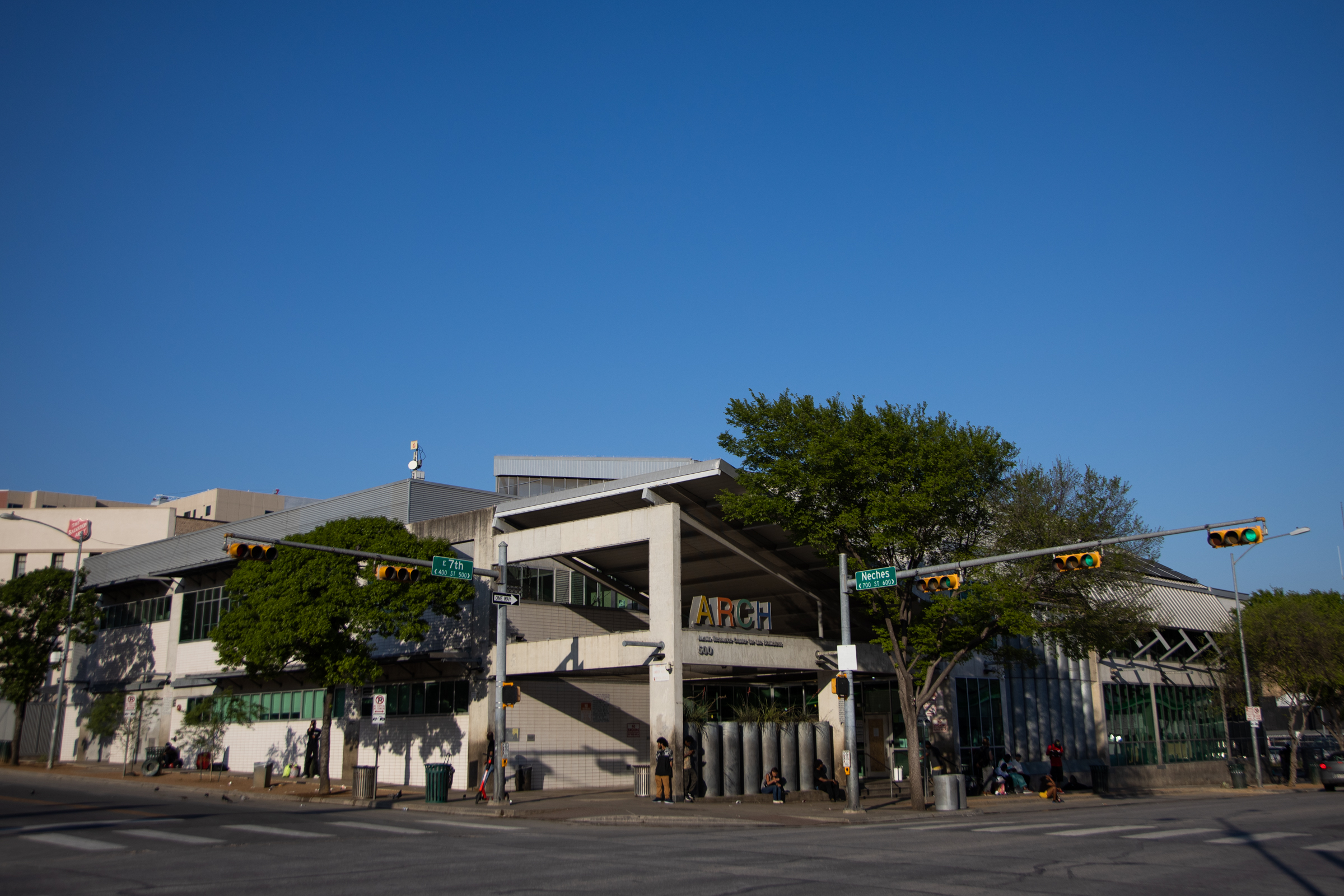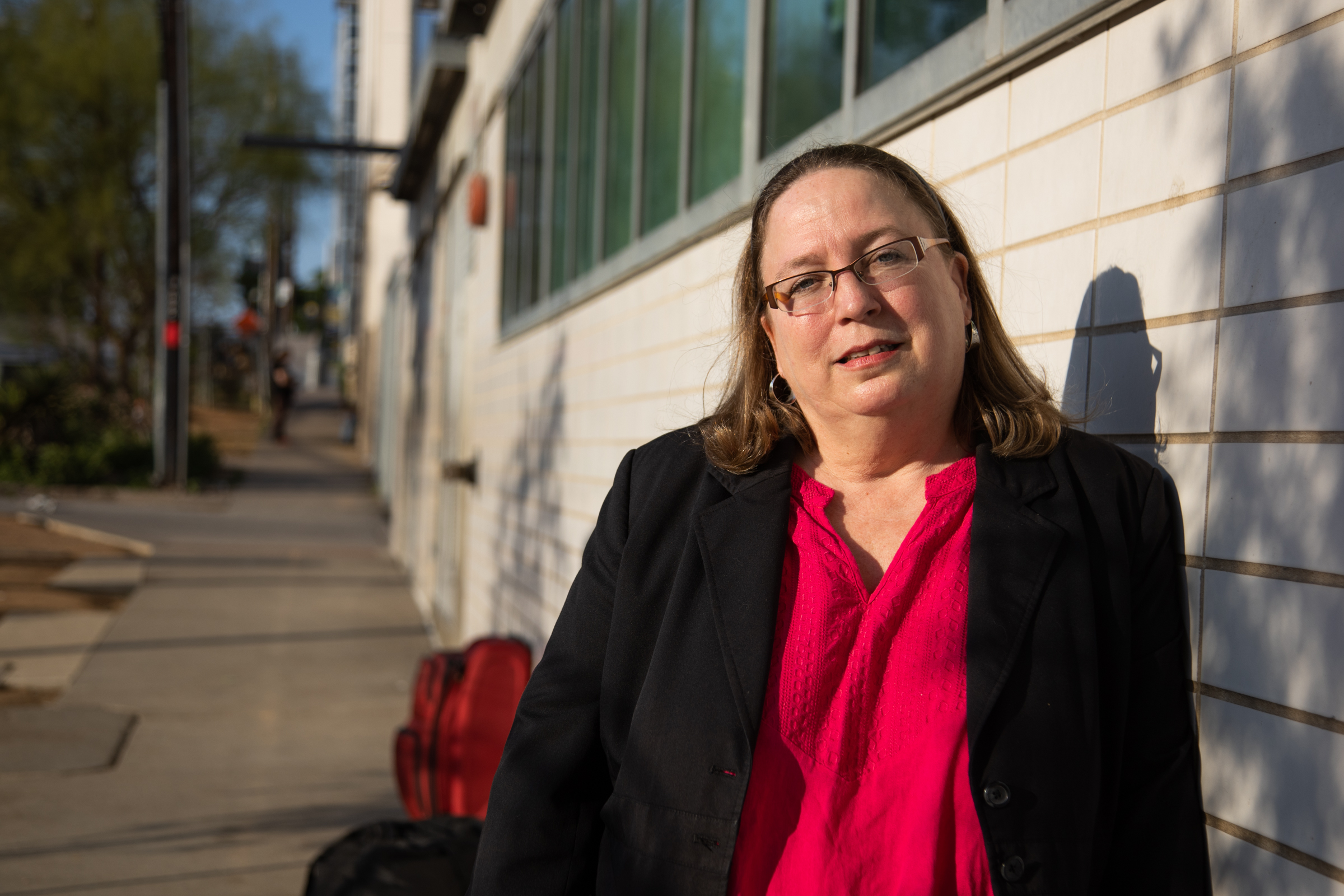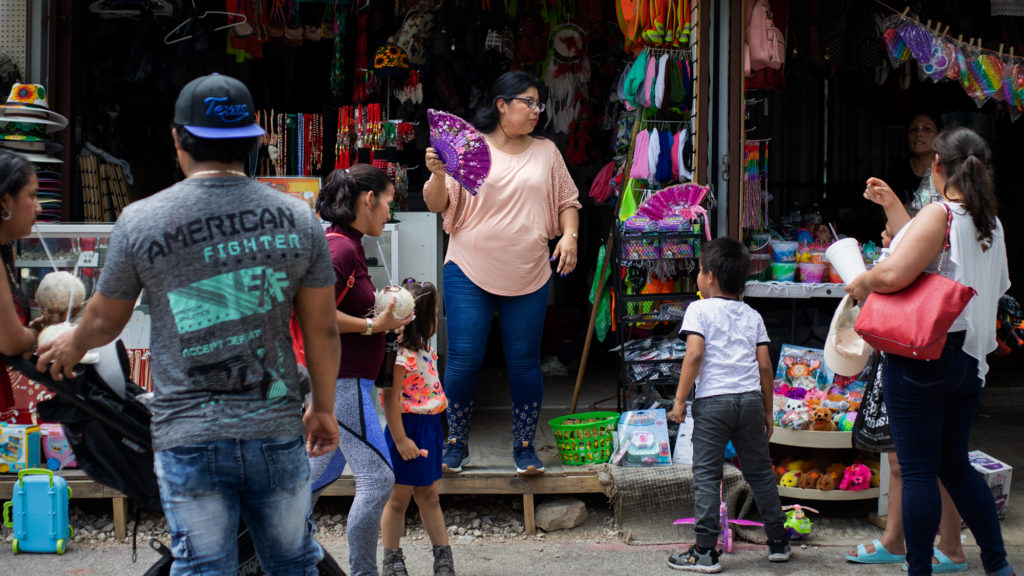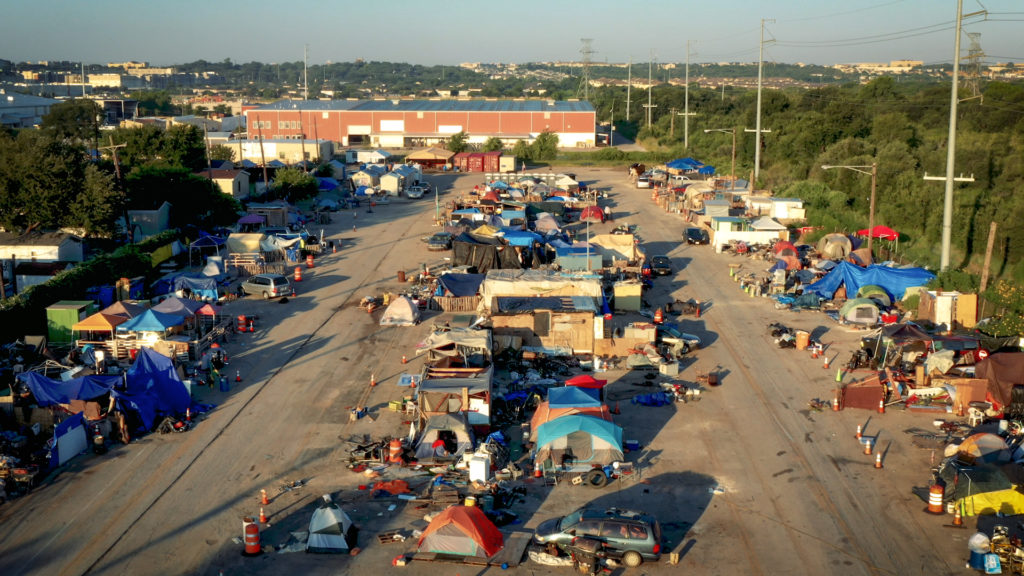Considered “nonessential to service delivery,” Amy Price is working from home, where she needs to be. She’s battled pneumonia several times, and she’s nearing her sixtieth birthday, two factors that place her at higher risk for COVID-19. She also has a teenage daughter at home, and lately, a deeper understanding of the Marvel universe.
Amy works for Front Steps, the organization that manages the Austin Resource Center for the Homeless (ARCH). Before the COVID-19 crisis, she spent her days in an office on the second floor, somewhat removed from the normal buzz and traffic within the city’s downtown homeless shelter.
But as development and communications director for Front Steps, Amy’s role is hardly “nonessential.” She raises money for programs to support ARCH clients and shares the stories that promote empathy toward Austin’s homeless residents.
As an extrovert, Amy is well-suited for fundraising, but less so for long periods away from her team and the people they serve.
“It’s like being plugged into an energy current,” she says. “On any given day, when I move through the lobby, four or five people will come up to me. Maybe they need a blanket or a razor, or they’re looking for their case manager. Sometimes we’re the only people who respond to their needs over the course of days and weeks and months. It’s more theoretical sitting at my desk writing about client needs when I’m at home. I miss physically being there.”
The lobby at the ARCH is mostly quiet these days. Early on in the crisis, the shelter suspended day services for guests who come regularly to shower, pick up mail, or charge their phones. It was a difficult but essential decision, Amy says, for the protection of 100 long-term clients, all men, who sleep in the shelter until case managers can guide them toward permanent housing.
The cautious approach appears to have worked — at least thus far. The ARCH recently tested 80 percent of its clients for the coronavirus after one positive case emerged at The Salvation Army shelter next door. Only one ARCH client tested positive, and he was quickly moved into isolation, with no new cases since.
“We have done a great job holding the line. None of our staff have tested positive, and we are really proud of this, but it’s only because of these very difficult humanitarian choices,” Amy says.

The Austin Resource Center for the Homeless in downtown Austin is still operating, but with limited services in order to protect their long-term clients. [photo by Kelly West]
Front Steps has managed the shelter for the past 20 years, providing day services to more than 4,000 homeless Austinites each year, while also serving 400 to 500 male clients who are working toward housing and employment.
“We got someone into housing yesterday,” Amy says. “We continue to get people into stable housing now. We are ending homelessness for about a dozen people every month in spite of all this.”
But the staff at Front Steps worry former clients could lose their housing if they don’t receive rental assistance in the coming weeks and months. “All of these [former] clients pay rent. If they’ve lost their jobs, their housing is likely to follow.”
Amy hopes Front Steps can help these clients bridge the gap until jobs become available again. But who can say how long the crisis will last or how much money it will take to cover clients until stability returns. “If they fall out of housing and wind up back in the shelter and we start this process over, think of the investment we’ve potentially lost,” Amy says. “Think of the client’s investment.”
Relief may come soon, through a new funding stream announced by the city — $15 million for organizations like Front steps and local food banks that provide direct services to those impacted by the crisis. Large foundations in the city have established similar funds, and now Amy, and others like her, are rushing to submit grant applications.
Amy worries that smaller organizations could be passed over in this process, so she’s offered to help several with their requests. “You can immediately see the cracks,” she says. “People will fall through, you know.” She’s also sharing the opportunities she finds with other nonprofits that could benefit, and says other leaders across the city are doing the same.
“This is an ecosystem, not a prize fight,” Amy says. “Most of us working in nonprofit development are measured by what we generate for our individual programs, but I think the bigger picture should be what we generate for the issue. Solutions need a lot of nonprofits.”
Amy is heartened by several new trends she’s noticed: Foundations are relaxing restrictions on grant funding, telling nonprofits to use donated funds however they need to. At the same time, many Front Steps’ volunteers are sending small, regular donations since they can no longer help out at the shelter.
As conditions shift and evolve, Amy continues telling the stories that can win hearts and minds — and even those you’ll never find in her seasoned grant applications.
She talks about a gentleman who, before the pandemic, came by the shelter often but never entered — because crowds make him nervous, Amy says.
He spends most of his time outdoors, and would rarely, if ever, be welcomed into a trendy downtown establishment. But now he can sit for long stretches on the patios of Austin’s best-known restaurants.
It’s quiet. No one comes to run him off or push him out.
“I love that he can sit at the good tables,” Amy says, “and no one’s giving him the side eye.”



